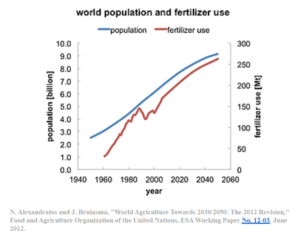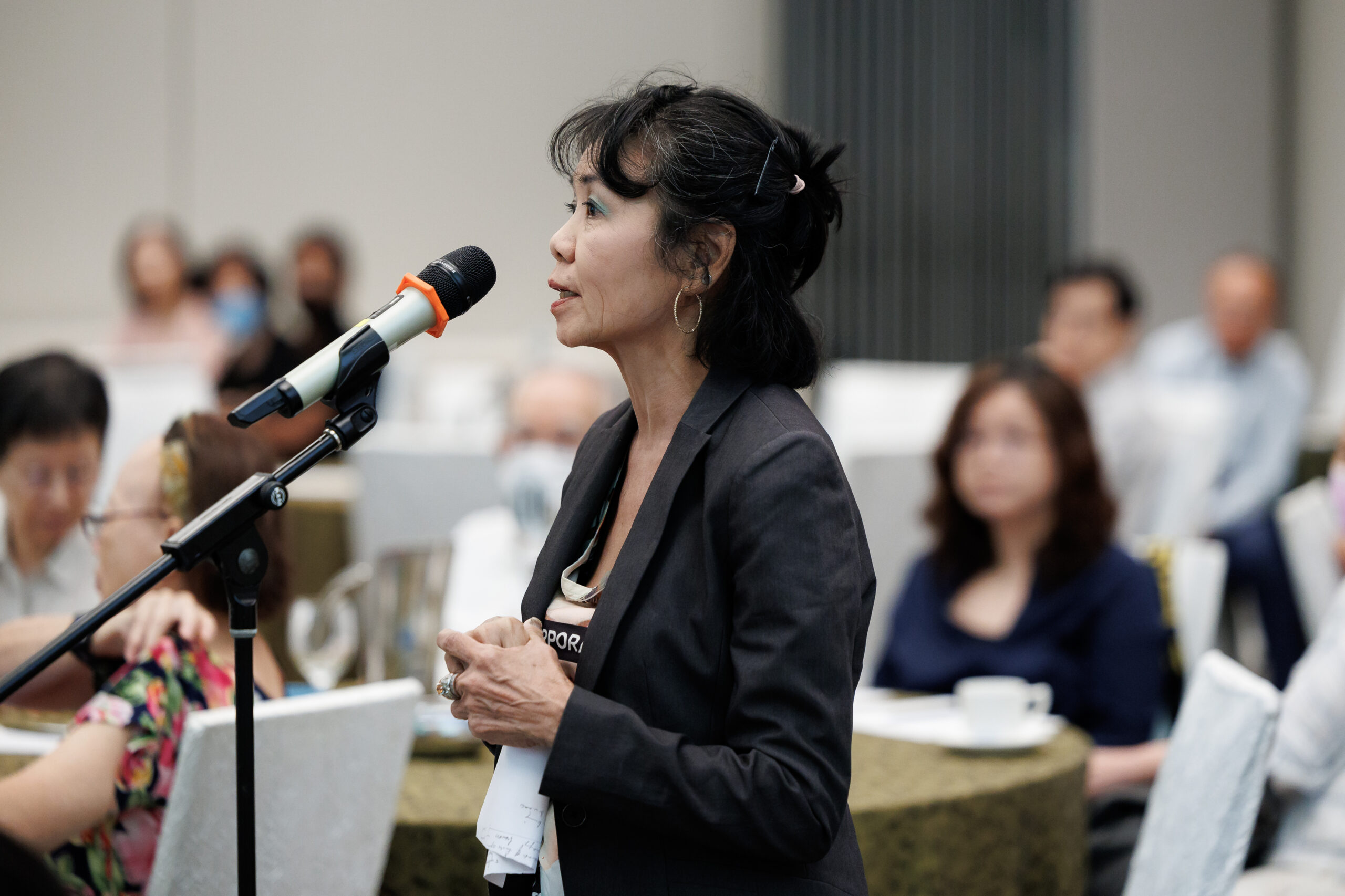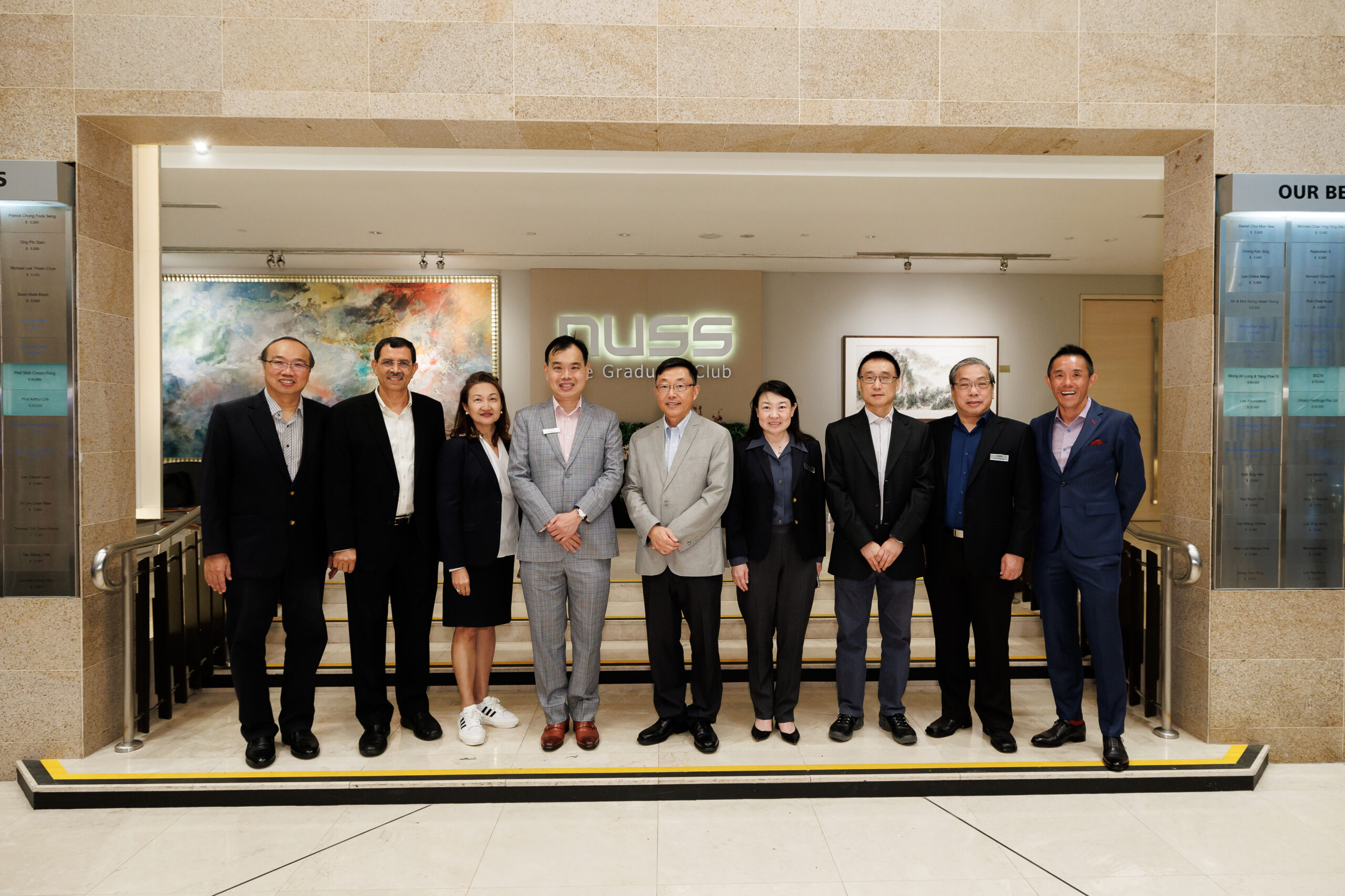Climate change is an ever-increasing threat to our environment, agriculture and food security. Moreover, today’s agricultural production is heavily reliant on chemical fertilisers, pesticides and herbicides that pollute our environment and worsen climate change. To break this vicious cycle, there needs to be a new “green revolution” to bring forth a new era of sustainable agriculture and a cleaner environment.
Those were the key issues addressed by NUSS Visiting Professor Luan Sheng in his lecture at the Della & Seng Gee Guild Hall of the Kent Ridge Guild House on the evening of 18 July 2023. Titled ‘Food Security in the Face of Climate Change: The Next Green Revolution’, the event attracted more than 120 NUSS members, NUS students and guests.
One of the world’s top researchers
Prof Luan was introduced to the audience by NUSS President Mr. Edward S Tay. He highlighted that Prof Luan has built an illustrious career as an academic and scientist over the past 25 years at the University of California Berkeley, USA where he is currently Chancellor’s Professor and Chair at the Department of Plant and Microbial Biology. His scientific papers have garnered more than 23,000 citations, making him one of the world’s most highly cited researchers in plant and animal sciences.
Moderating the lecture was Prof Prakash Kumar. A plant molecular developmental biologist with the Department of Biological Sciences (DBS) at NUS, he is currently the Director of Research Centre on Sustainable Urban Farming. His other positions include serving as Chair of the Genetic Modification Advisory Committee Singapore and as Singapore’s national correspondent for the International Association for Plant Biotechnology.
Prof Luan started his lecture by pointing out that all lifeforms on our planet rely on the same nutrients although the food can come in different forms. He added, “We may think we are on top of this food chain but that’s debatable. But what is important to note is that our teeth are like that of a monkey and not like that of a tiger. We are herbivores.”
Prof Luan pointed out that meat consumption exacerbates the problem because while agriculture and its related production and distribution activities also generate greenhouse gases, the volumes are significantly lower than that associated with the rearing of livestock. After all, farm animals largely feed on grains that can be used to directly nourish people. However, the long history of farming has depleted much farmland of nutrients and today’s agricultural production is heavily relying on the application of chemical inputs to increase crop yields. One solution would be to breed crops that produce more but need less or no chemical fertilisers or pesticides.

Plants are not mobile and are unable to leave their environment and Prof Luan’s research has revealed that crops have evolved elaborate mechanisms to integrate the “outside world” into their life cycle control. He explained, “As environmental conditions constantly change, plants rapidly perceive those changes and respond by physiological and developmental changes. The goal of our research is to understand the molecular mechanism underlying plant response and adaptation to its environment.”
Plants have developed self-defence mechanisms
Describing the mechanism of calcium spiking in plant innate immunity, he said that calcium levels in plant cells rapidly increase to signal the presence of pathogens. Plant cells then respond to the calcium signal by mounting a series of biochemical reactions to defend themselves against pathogen-induced damages. He also cited the example of a caterpillar feeding on a lettuce leaf. The plant will react by releasing higher levels of calcium to make it less appetising. Hopefully, the caterpillar will then search for more tasty pastures.
The trouble with chemical fertilisers
In addition to the environmental impact, there could also be supply chain issues as chemical fertilisers are heavily dependent on potash or potassium that is mainly from Russia and Canada. There are also complications. For instance, not only will rain wash away recently applied chemical fertilisers and pollute rivers and ground water, it will necessitate further application of chemical fertilisers.
A lively Q&A session followed the lecture. To the question on improving sustainability by recycling the unwanted parts of the crop, Prof Luan said that this was the traditional practice where these unwanted materials were burnt to create potassium-rich ash that was then used to fertilise the next batch of crops. But burning these is environmentally harmful. Prof Kumar added to the discussion by noting that while there are other alternatives to burning, farmers still prefer to stick to the old ways. “Change will take some time,” he said.
As the audience were well-versed with the subject, there was much cross-sharing of views. For instance, when a member of the audience suggested using human manure or waste as an alternative fertiliser, another member said that there was a case in Germany where people died after consuming cucumbers fertilised by a mixture of human and animal waste. Thus it was highlighted that use of such waste as fertiliser will have to be appropriately treated to prevent the spread of pathogens.

Another interesting question was what is the best food item to be consumed in terms of nutritional value and environmental impact. Prof Luan pointed to legumes and beans. “So, we should eat more bean sprouts,” cried out a member of the audience to much laughter. When it was time to end the session, Prof Kumar paid tribute to the NUSS Visiting Professorship Series. He said, “On behalf of the entire NUS community, I thank NUSS for setting up this programme.”
Ms Hazel Chew, who works in the food sector, and attended the lecture as a guest was glad she made the effort. She said, “It was a very interesting event, I’m used to attending agriculture and environmental events with very specific subject experts. The wide perspectives from yesterday’s talk led to all kinds of interesting questions, and definitely made it more entertaining and relatable.”
Prof Luan also gave several scientific seminars at the Department of Biological Sciences (DBS), NUS and the School of Biological Sciences, Nanyang Technological University. In addition, he had numerous discussions with DBS faculty members and interacted with the graduate students during his stay.

Caption: From left to right: NUSS Management Committee (NUSS MC) member Mr Jeffrey Khoo, NUS Department of Biological Sciences and lecture moderator Prof Prakash Kumar, NUSS MC member Dr Sean Kuan Thye, NUSS President Mr Edward S Tay, Visiting Professor and Professorship Lecture speaker Prof Luan Sheng, NUSS MC member Ms Catherina Tan, NUS Department of Biological Sciences (Provost’s Chair Professor and Head of Department) Prof Yu Hao, NUSS MC member Mr Lee Hay Keong, and NUSS Intellectual Pursuit Sub-Committee member Mr Simon Ng.
The NUSS Professorship Lecture
NUSS established the NUSS Professorship with an endowment of $1.5 million to fund eminent professors from different disciplines to share their knowledge with the NUS community and general public. This Professorship is part of NUSS’ efforts to contribute to the development of meaningful interaction with its alma mater through academic pursuits. To date, more than 20 professors have been invited to share their expertise.



![[2023.07.18] - NUSS Professorship Lecture - Image 1](https://www.nussgraduate.org/wp-content/uploads/2023/08/2023.07.18-NUSS-Professorship-Lecture-Image-1-696x464.jpg)



